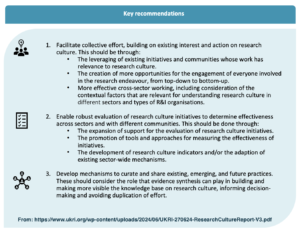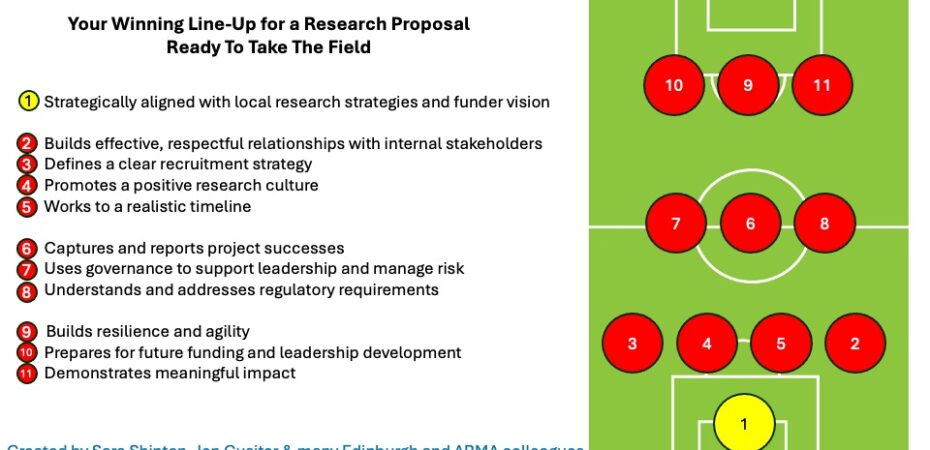In the summer, Jen Cusiter and I, set our dignity aside and performed at the ARMA Conference in a memorable reinterpretation of Sliding Doors. After we’d had our fun playacting what happens when proposal writers ignore the good advice of research professionals, we shared a document which we’d put together and wanted to share more widely.
The document was a list of questions to consider when putting together a complex bid – you can read the original here. Although we did ask for some sense-checking, the main purpose of the session was to work out how to share something like this. We’ve got lots of good ideas and good practice as a profession, but it’s often challenging to share this with our peers and those who need it.
Whilst we continue to work on the resource so we can position it more effectively, this blog explains why we focused that session on good practice sharing. This has become a bit of an obsession for me of late, ever since a conversation with Nic Edwards from Cardiff in mid 2023 where she introduced me to the concept of “receivability”. As the Gen Zs say (well they probably don’t anymore) that idea has lived rent free in my head since. I’ve spent my whole career creating things for researchers and those who support them. Lots of projects, booklets, web resources, toolkits – it’s a long list. But I often hear people calling out for things that I know have been created already. Why are we so bad at sharing and finding good practice?
Improvements to good practice sharing is a priority for UKRI as well. In their 2024 Research Culture Initiatives in the UK report they set out three recommendations – work together, work out what works, share better:

This report appeared the year after Kay Guccione and I started to coalesce our ideas when we were asked to lead on the writing of a collaborative Wellcome Institutional Research Culture Fund bid, along with St Andrews. These three ideas play out in what became the InFrame project – it’s collaborative and fosters more collaboration; it’s deeply reflective and committed to evaluation and we are focused on the receivers of what emerges. InFrame is now in full flow with 27 projects covering a huge range of research culture issues and opportunities, connected by our core theme of collegiate leadership. It’s going to be exciting to see what these partner projects create and discover, but I’m most interested in what we do with this stuff. So the ARMA session was a chance to think about how to get things to LAND.
Another impactful conversation happened about a year later, when I went to Keele to talk about research culture and met Tracy Nevatte. She and I talked about the tendency of funders to give money to larger, more complex, institutions with greater resource…who then create things that make sense to them… but when they are considered by institutions with completely different structures, resources and priorities they can’t be used. All that investment that could have created impact in places that need help gradually dissolves away. Although the skills and knowledge remain in the heads of the people who work on these initiatives, they then tend to stay in the larger, more resource rich, institutions because that’s where the opportunities are. The cycle continues.
A future blog will share details of what the AMRA community want us to bear in mind as we finalise the “shovel ready” resource. I’m also planning to work with a wider group of smaller, less-research intensive institutions on a win-win approach where I can learn from them about their needs and weave their perspectives into my thinking, whilst sharing some of the learning and resources from my projects.
In the meantime, here are some resources you might find interesting and helpful…
Toolkits from the FLF Development Network, written for new research leaders, on Recruiting a Research Team, Mentoring (mentees and mentor versions), Influencing, Policy Engagement, Writing Big Bids, Understanding the UK Research Landscape. More are coming…
Resources created by FLFs, created through our Plus Fund covering topics such as Setting up a Research Centre, Researcher Wellbeing for those conducting emotionally demanding research and a toolkit to help managers support the career development and wellbeing of early career researchers.
And if they AREN’T useful, please tell me why and what would make them usable. The InFrame project runs until August 2026 and the FLF Development Network until 2028 – lots of time for us to get better at this with your expert input.


